Guide to developing nutrition standards

Nutrition standards guide developed by Resolve to Save Lives that governments can use to ensure food and beverages purchased, served and/or sold in government settings such as schools, public hospitals, childcare or child development facilities, correctional facilities and government workplaces are healthy and low in sodium.
User Guide for RTSL’s Global Nutrition Database

Detailed user guide to supplement use of Resolve to Save Lives’ Global Nutrition Database for Packaged Foods, an online, open access, centralized platform for category level packaged food data that policy advocates and decisionmakers can reference when developing food policies or tracking country progress.
Tools for the Assessment of the Public Food Procurement and Policy Landscape
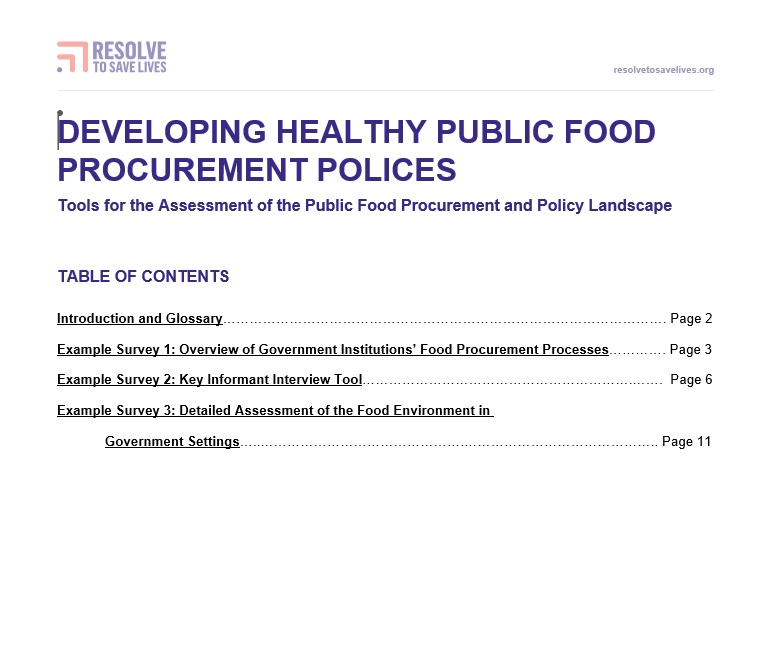
A comprehensive assessment of the existing food procurement landscape is crucial to the development, implementation, and evaluation of a healthy public food procurement policy that is relevant to the specific context. Resolve to Save Lives has developed example surveys for capturing key aspects of the food procurement and policy landscape. These surveys should be adapted […]
Lower sodium, longer lives

Sodium reduction is the single most important dietary intervention for improving heart health and saving lives. Learn more in this resource developed by Resolve to Save Lives.
Healthy Public Food Procurement and Service Policies Fact Sheet
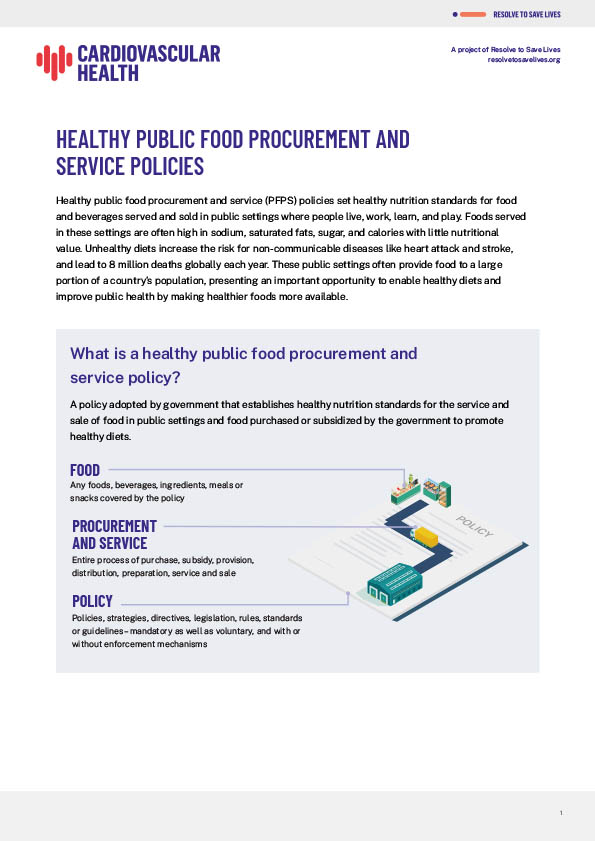
Core principles, benefits and resources for implementing healthy food procurement and service policies.
Home Grown School Feeding Initiative
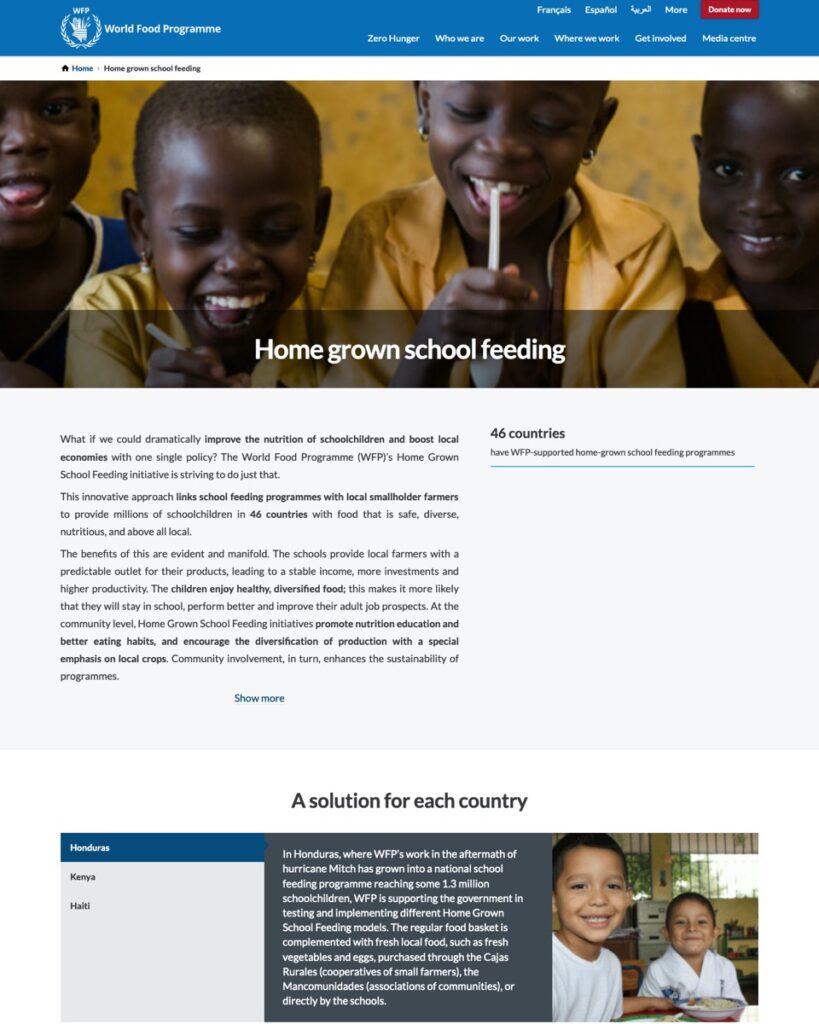
Website describes Initiative, which links school feeding programs with local smallholder farms to provide food for schoolchildren.
A Global Review of Food-Based Dietary Guidelines
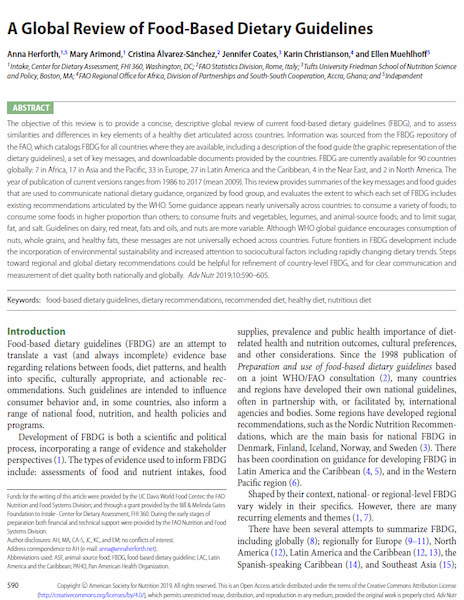
Review of current food-based dietary guidelines (FBDG), assessing the similarities and differences in key elements across countries
Monitoring foods and beverages provided and sold in public sector settings
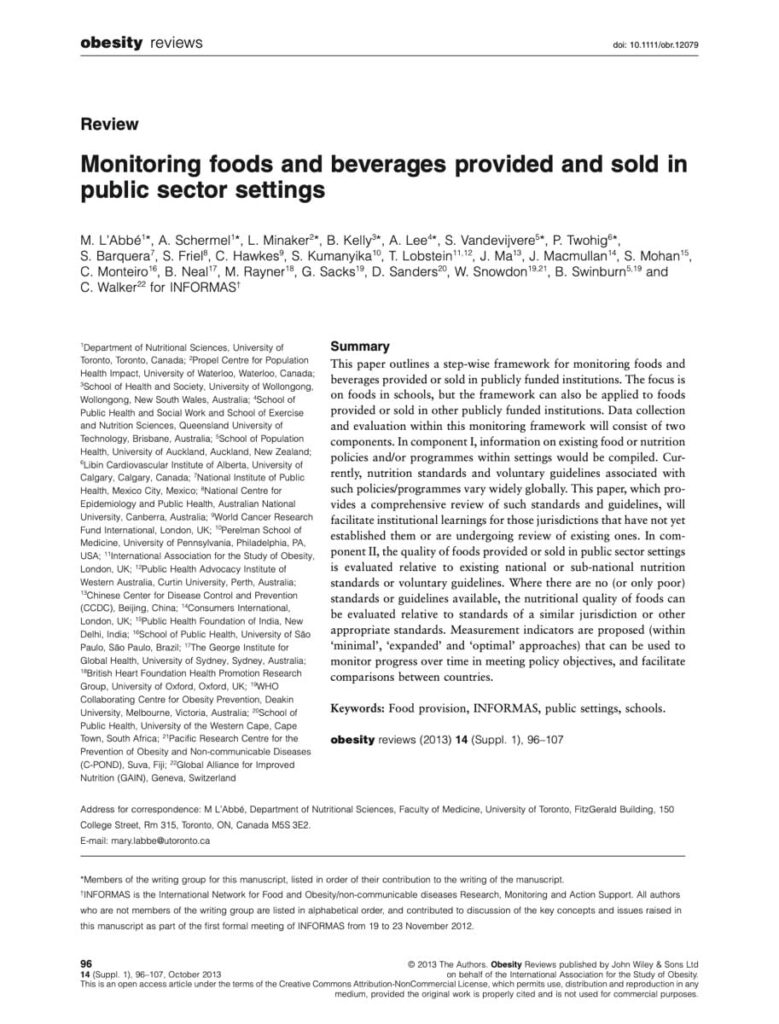
Step-wise framework for monitoring, includes: 1) previous monitoring activities of school food programs, and 2) survey questions for initial assessment.
INFORMAS Public Sector Policies and Actions – The Healthy Food Environment Policy Index (Food-EPI)
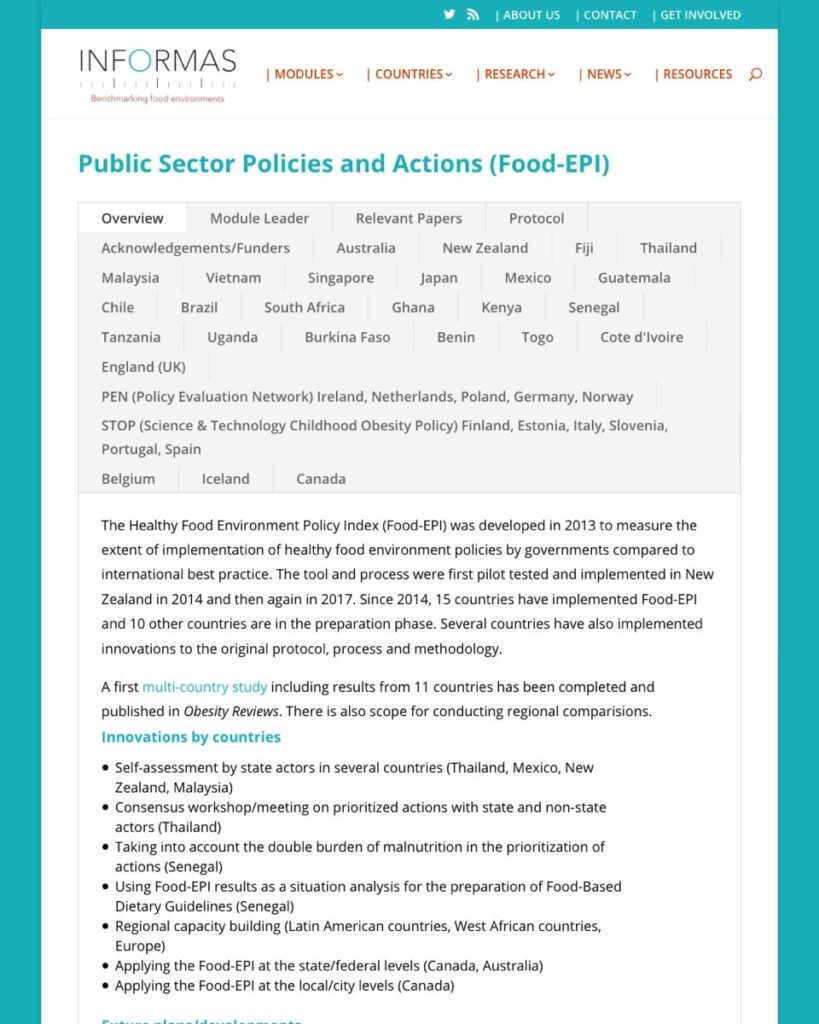
The policy index measures the extent of implementation of health food environment policies by governments compared to international best practice and includes a module on Food Provision.
Healthy food procurement policies and their impact

Systematic review of the evidence base for healthy food procurement policies
WHO Nutrition-Friendly Schools Initiative
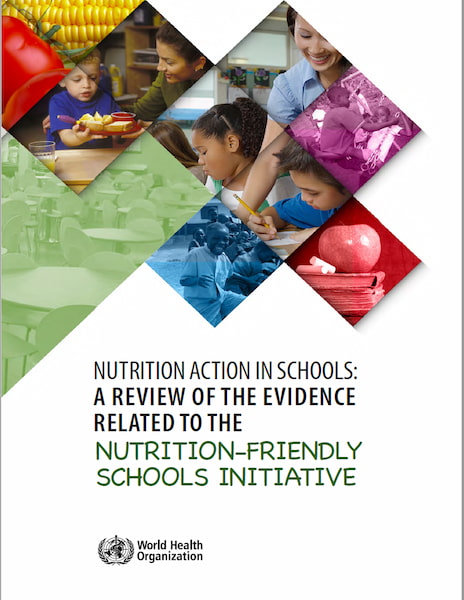
This initiative created a framework for addressing the double burden of student ill-health and aims to improve coordination among agencies. Refer to ‘NFSI Component 4: Creating a supportive environment’ in the evidence review.
WHO Nutrient requirements and dietary guidelines website
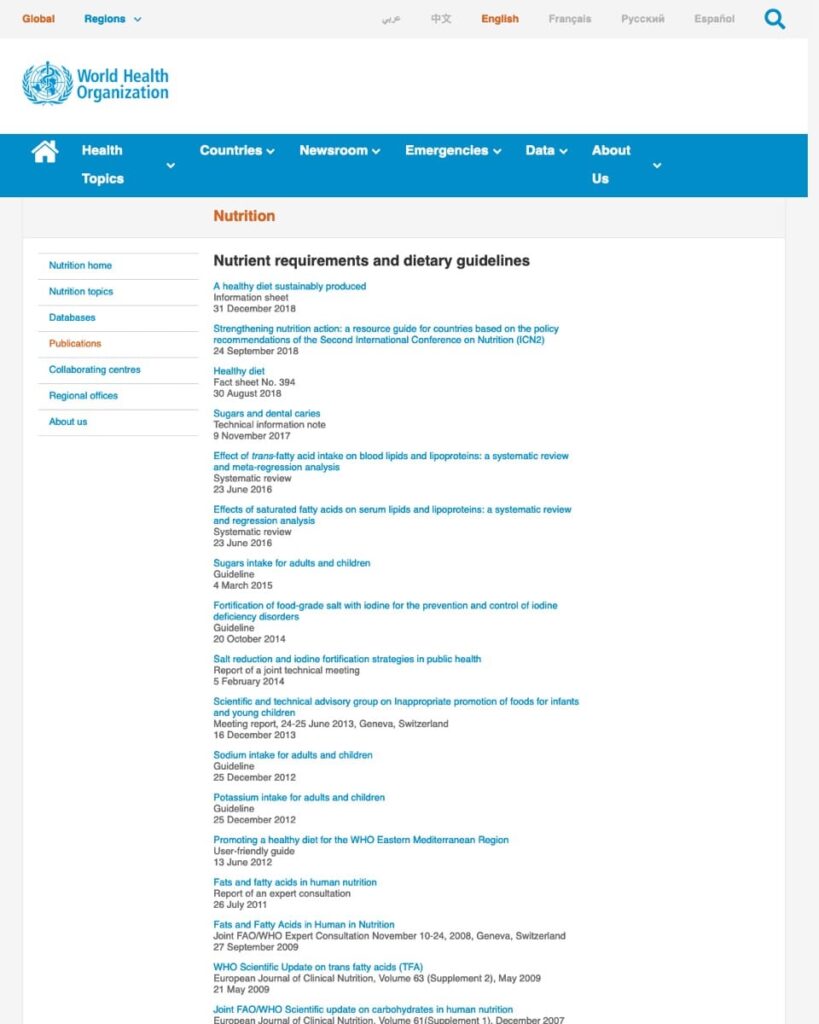
Site includes links to WHO nutrition documents, including Healthy Diet factsheet and guidance on sugars, fats, and sodium.
Global Strategy on Diet, Physical Activity and Health: A Framework to Monitor and Evaluate Implementation
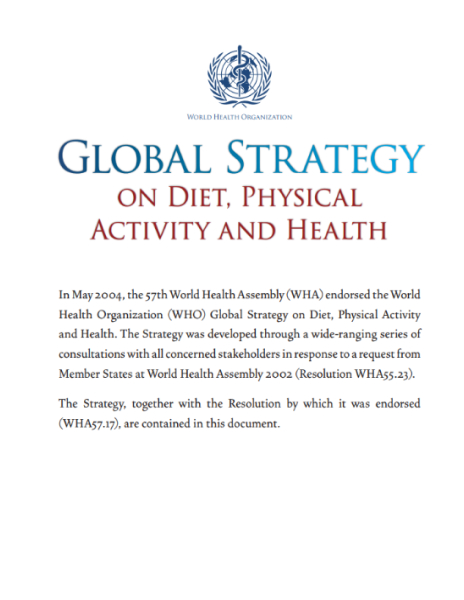
Describes how to measure the implementation of the WHO Global Strategy on Diet, Physical Activity, and Health at the country level and proposes a framework and indicators (Logic model, page 5).
WHO 5 keys to a healthy diet
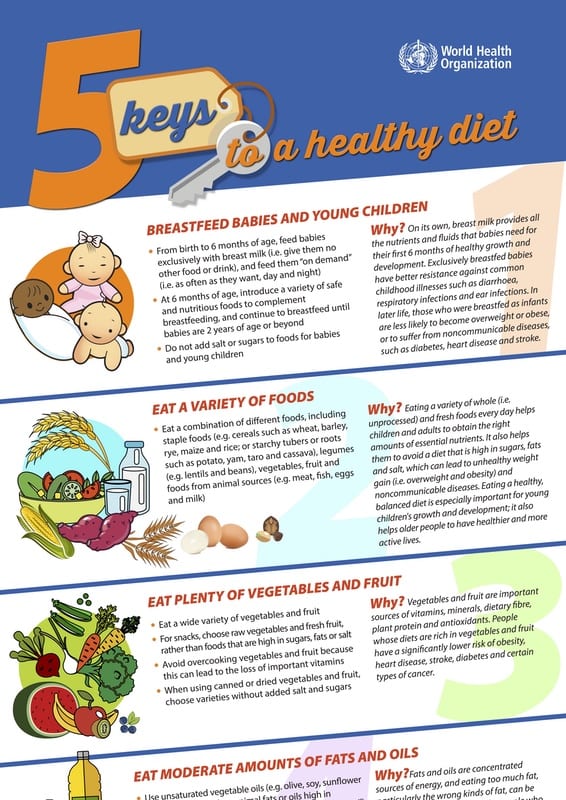
Describes five key elements of a healthy diet.
Sustainable Healthy Diets – Guiding Principles (2019)
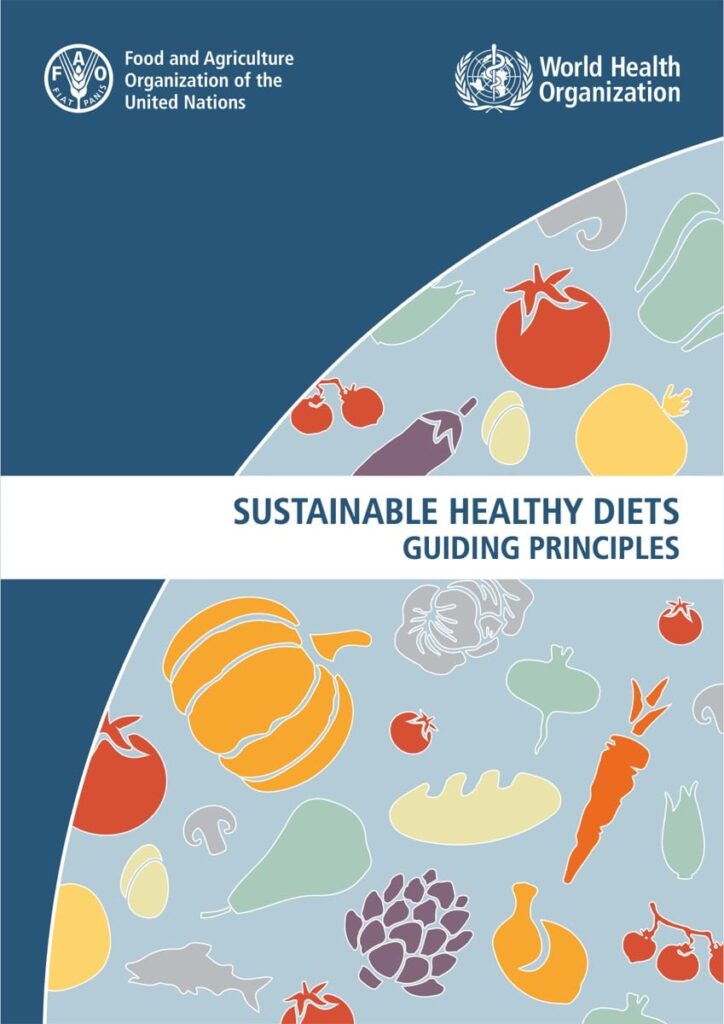
Guidance on what constitutes sustainable healthy diets.
Strengthening sector policies for better food security and nutrition results: Public food procurement (2018)
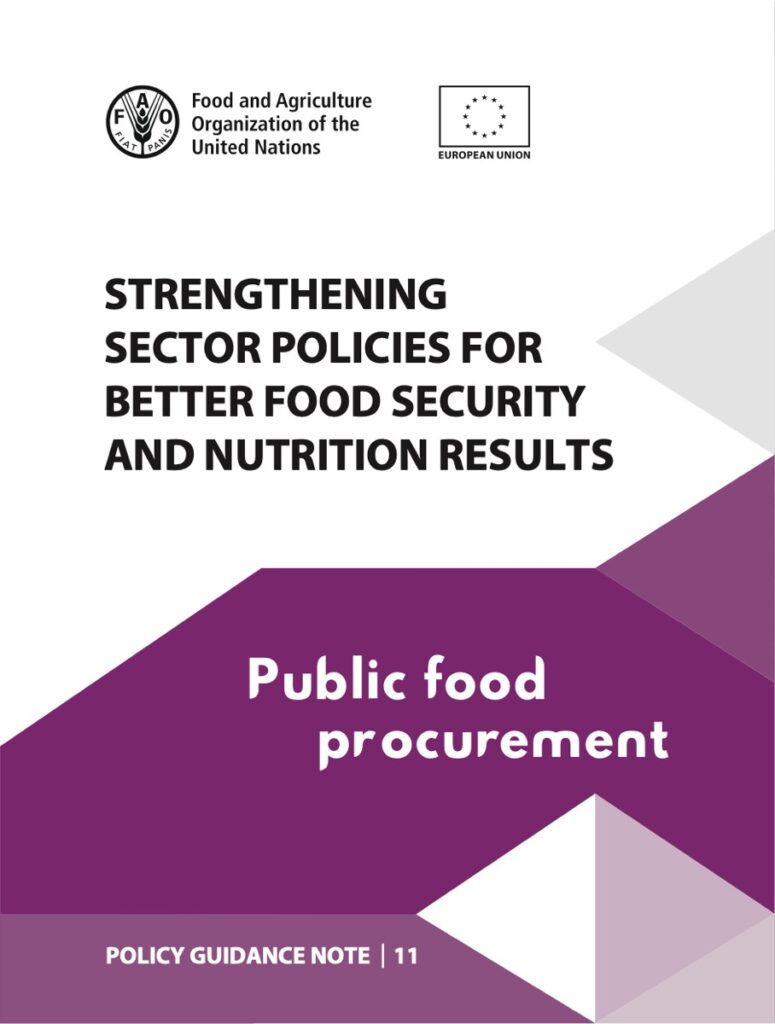
Part of a series to help policy makers address national food security and nutrition issues; guidance is focused on developing initiatives that support food purchases from small farms.
Set of Recommendations on the Marketing of Food and Non-Alcoholic Beverages to Children (2010)
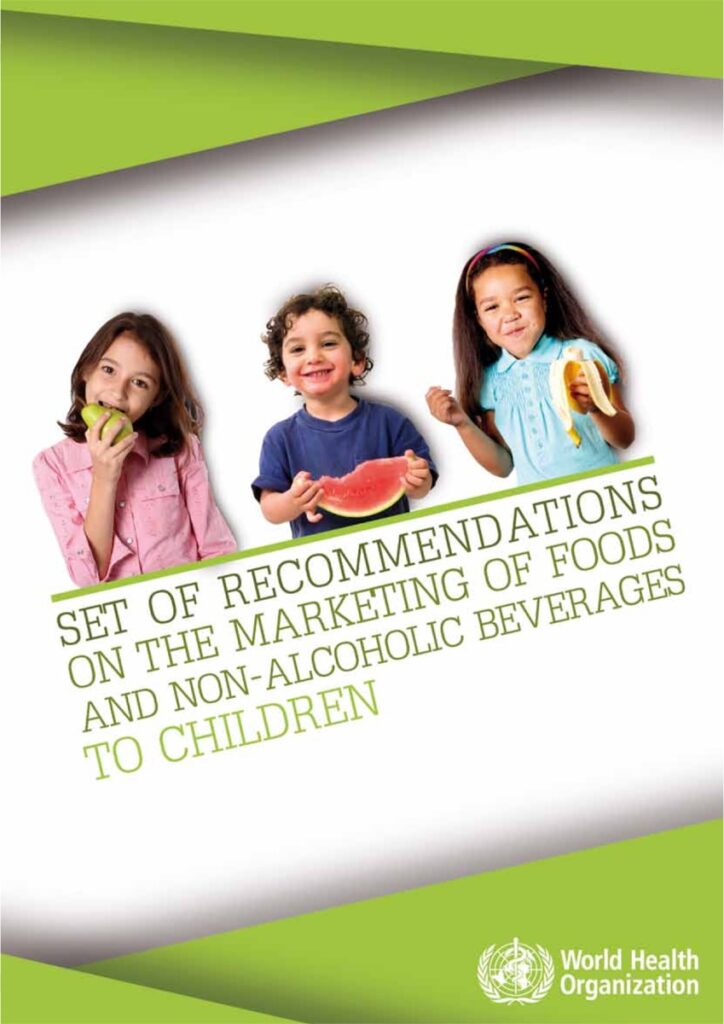
Describes recommendations for marketing food to children, a complementary action to include in food procurement standards.
School policy framework: implementation of the WHO global strategy on diet, physical activity and health (2008)
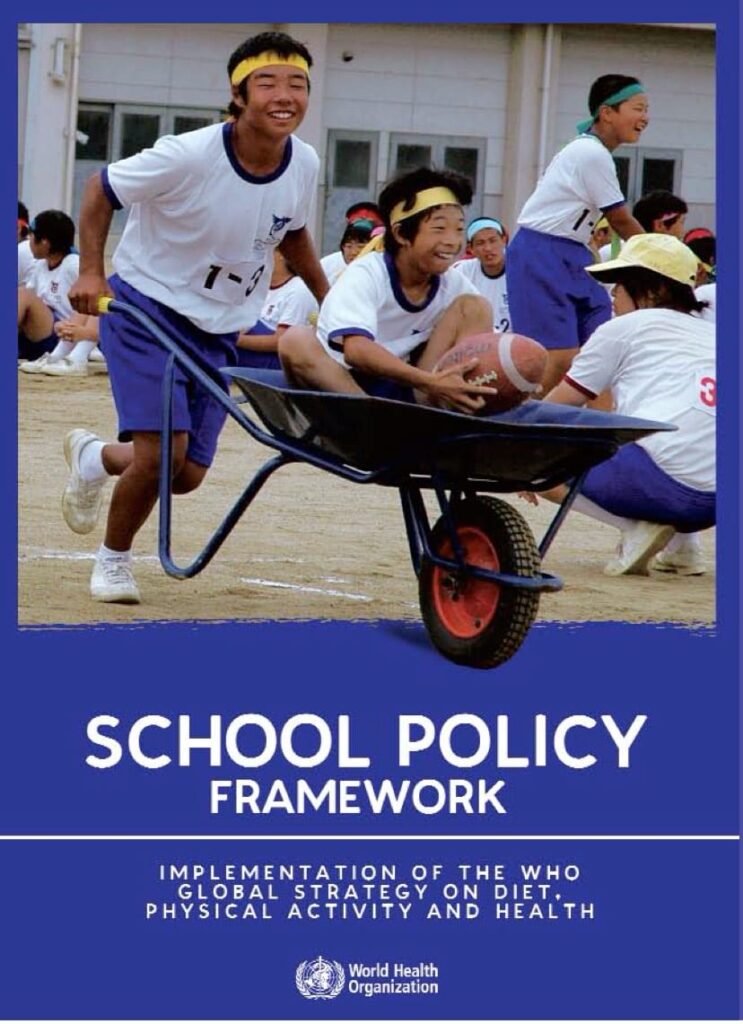
Guide for policy makers at national and sub-national level to promote healthy eating and physical activity in schools settings.
Report of the Commission on Ending Childhood Obesity. Implementation plan: executive summary (2017)
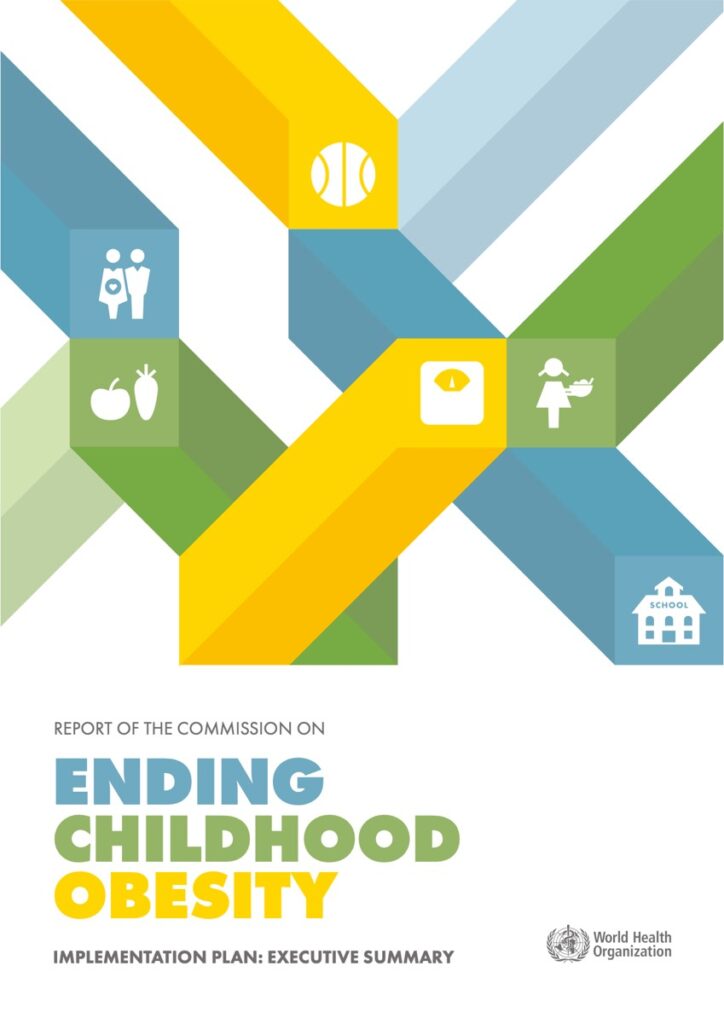
Includes standards (page 18) for food standards for healthy school environments for children and adolescents.
Nutrition guidelines and standards for school meals: A report from 33 low and middle-income countries (2019)
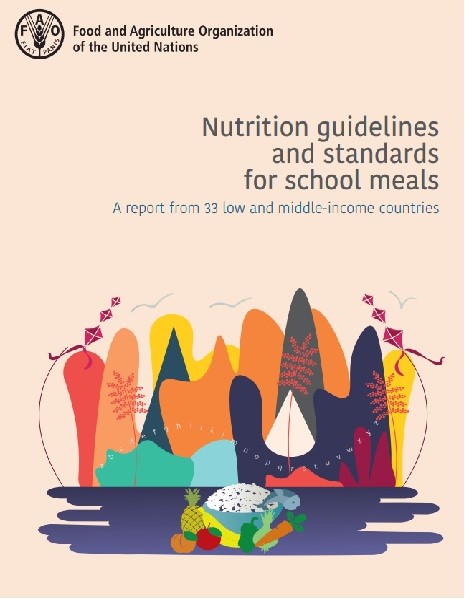
Results of global survey on school meals; report identifies key aspects to consider when developing or updating school meal program standards.
NOURISHING Framework
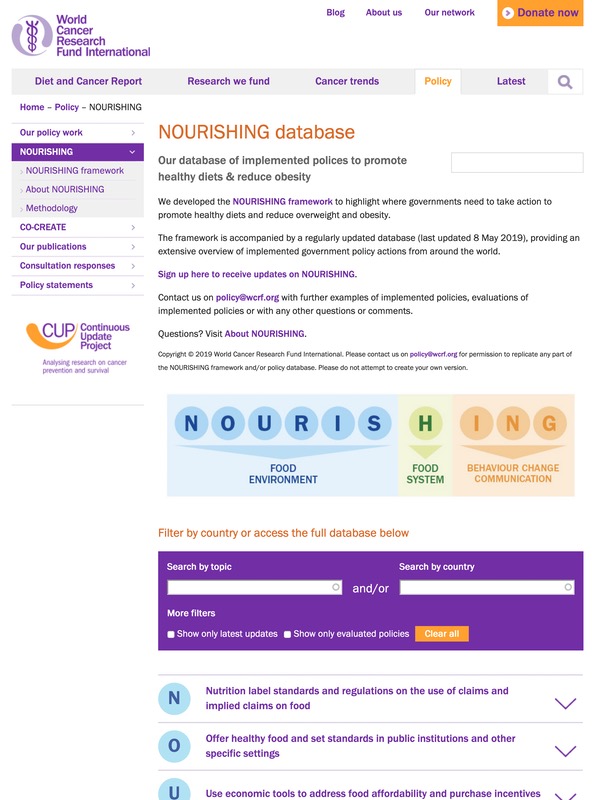
Searchable database of implemented policies to promote healthy diets and reduce obesity. Use Section O (Offer healthy food and set standards in public institutions and other specific settings) to search for public food procurement examples.
Effectiveness of school food environment policies on children’s dietary behaviors: A systematic review and meta-analysis
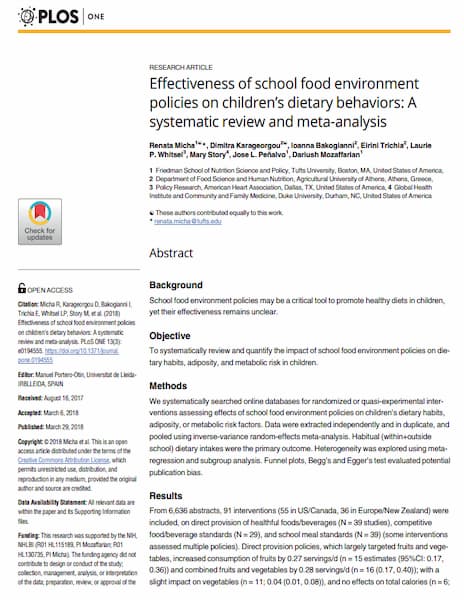
Systematic review includes 12 studies evaluating school meal standards implemented in the US, Canada, or UK, which were found to: increase fruit intake, reduce total fat, saturated fat, and sodium (but not total calories), and decrease BMI (although other adiposity measures evaluated were unchanged).
Legal guide on school food and nutrition: Guide on legislating for a healthy school food environment
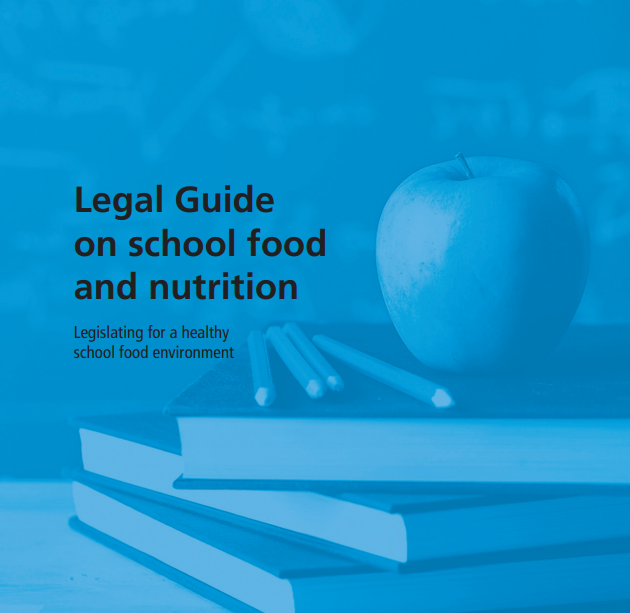
Provides practical information and guidance for developing or revising national legal frameworks related to school food and nutrition.
The Global database on the Implementation of Food and Nutrition Action – Public Food Procurement
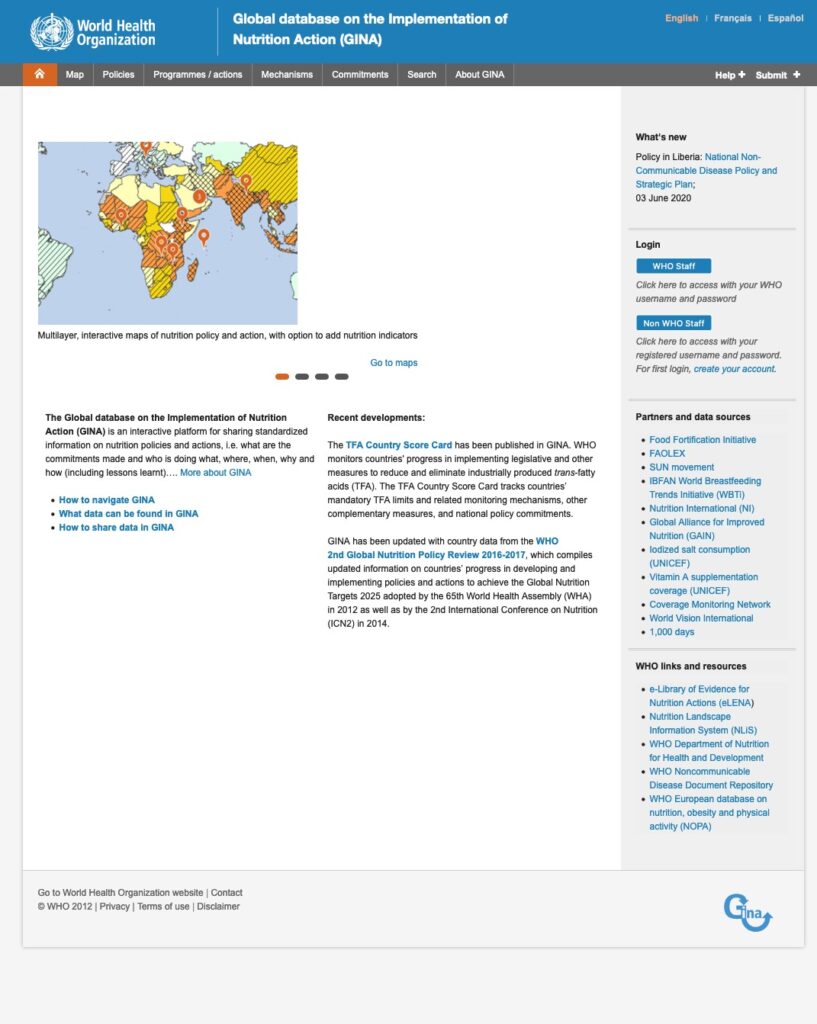
The data summary shows countries with mandatory and/or voluntary healthy public food procurement and service policies, with the setting covered indicated.
Food Service Guidelines Organizational Policy Template
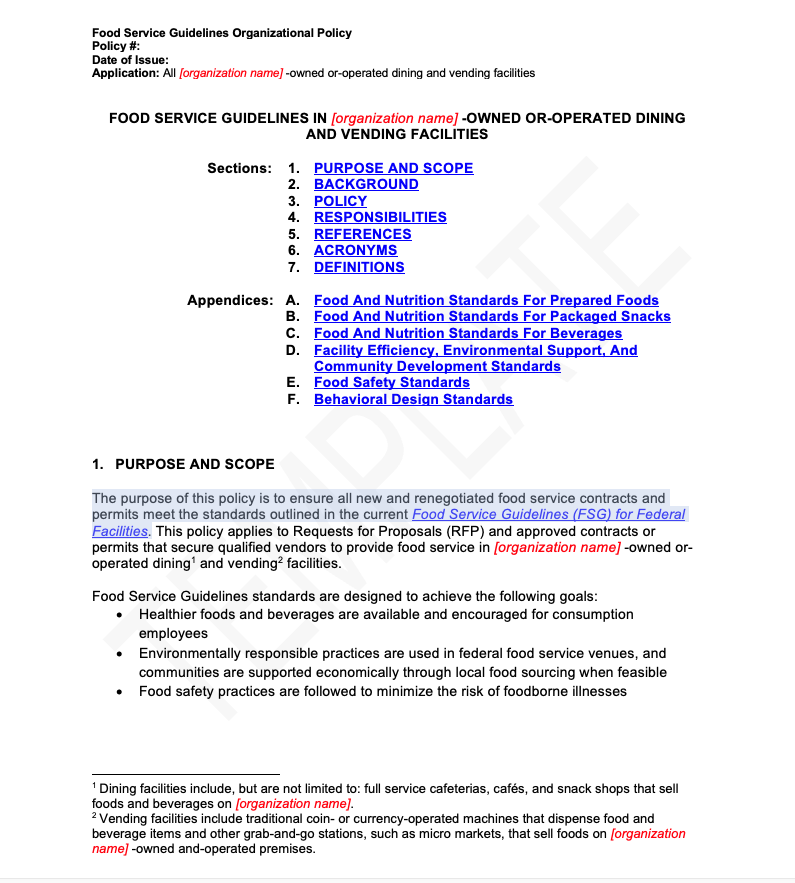
A template for organizational food policy guidelines adapted from the CDC
Food-based Dietary Guidelines
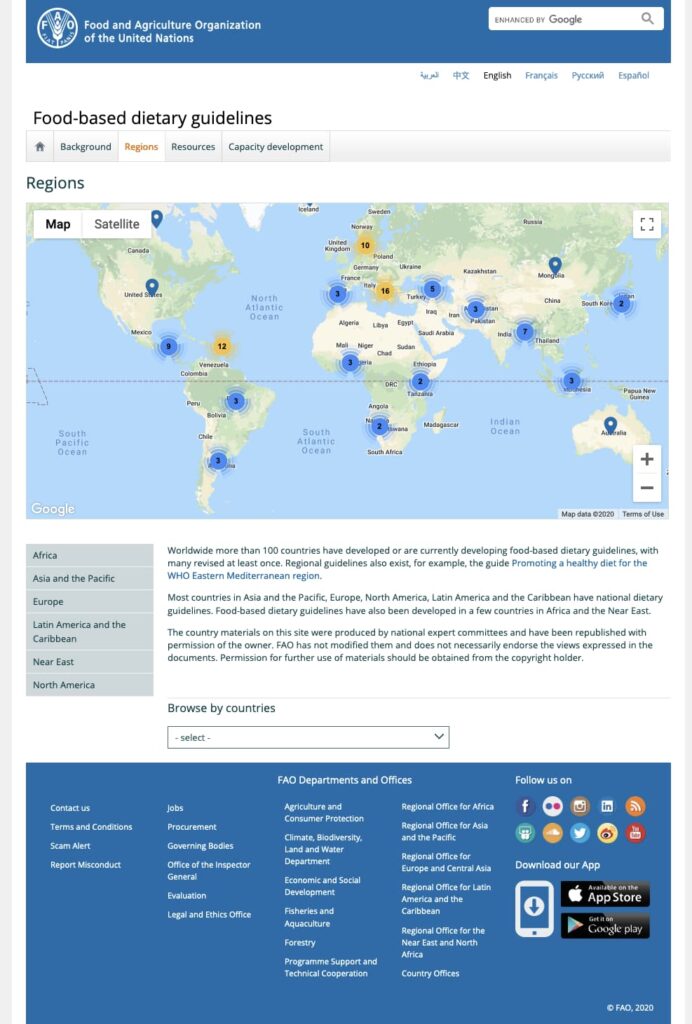
Database of food-based dietary guidelines for over 100 countries and regions.
Enablers and barriers to implementation of and compliance with school-based healthy food and beverage policies: a systematic literature review and meta-synthesis
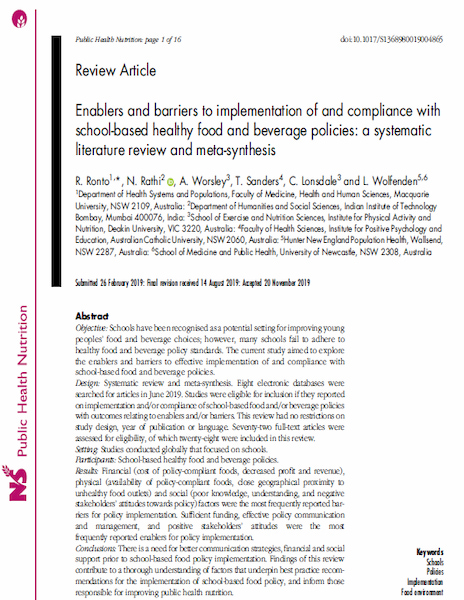
This study explores the enablers and barriers to effective implementation of and compliance with school-based food and beverage policies from countries around the world.
Eating Well in Government Venues website
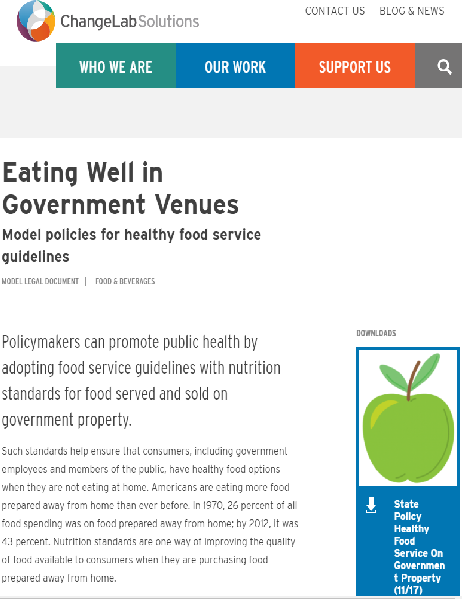
Model policies for policymakers. Website links to resources on creating healthy food service on government property and an infographic on buying food for health and equity.
Effect of changes to the school food environment on eating behaviours and/or body weight in children: a systematic review
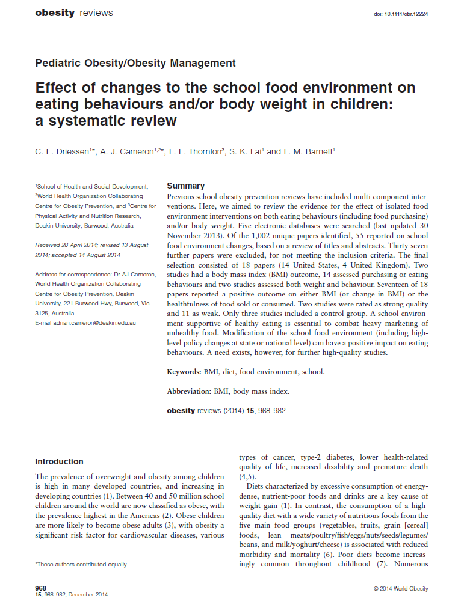
Reviews the evidence for the effect of isolated food environment interventions on both eating behaviors (including food purchasing) and/or body weight (all examples from US/UK). Seventeen of 18 papers reported a positive outcome on either BMI (or change in BMI) or the healthfulness of food sold or consumed.
The Power of Procurement
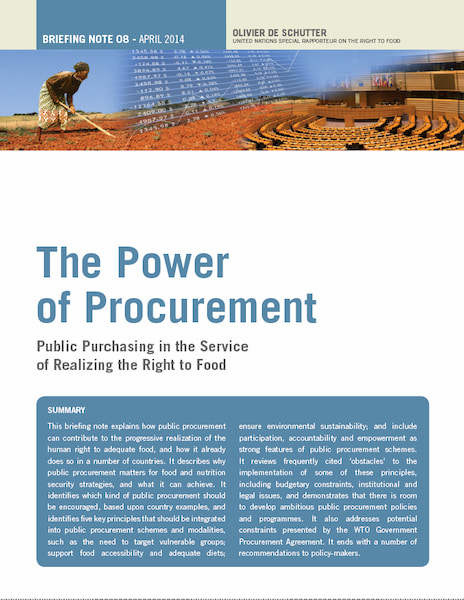
Provides an argument for: sourcing preferentially from small-scale food producers, guaranteeing fair wages and prices along the food supply chain, nutrition standards, sourcing locally whenever possible and expecting suppliers to produce food sustainably, increasing participation and accountability in the food system.